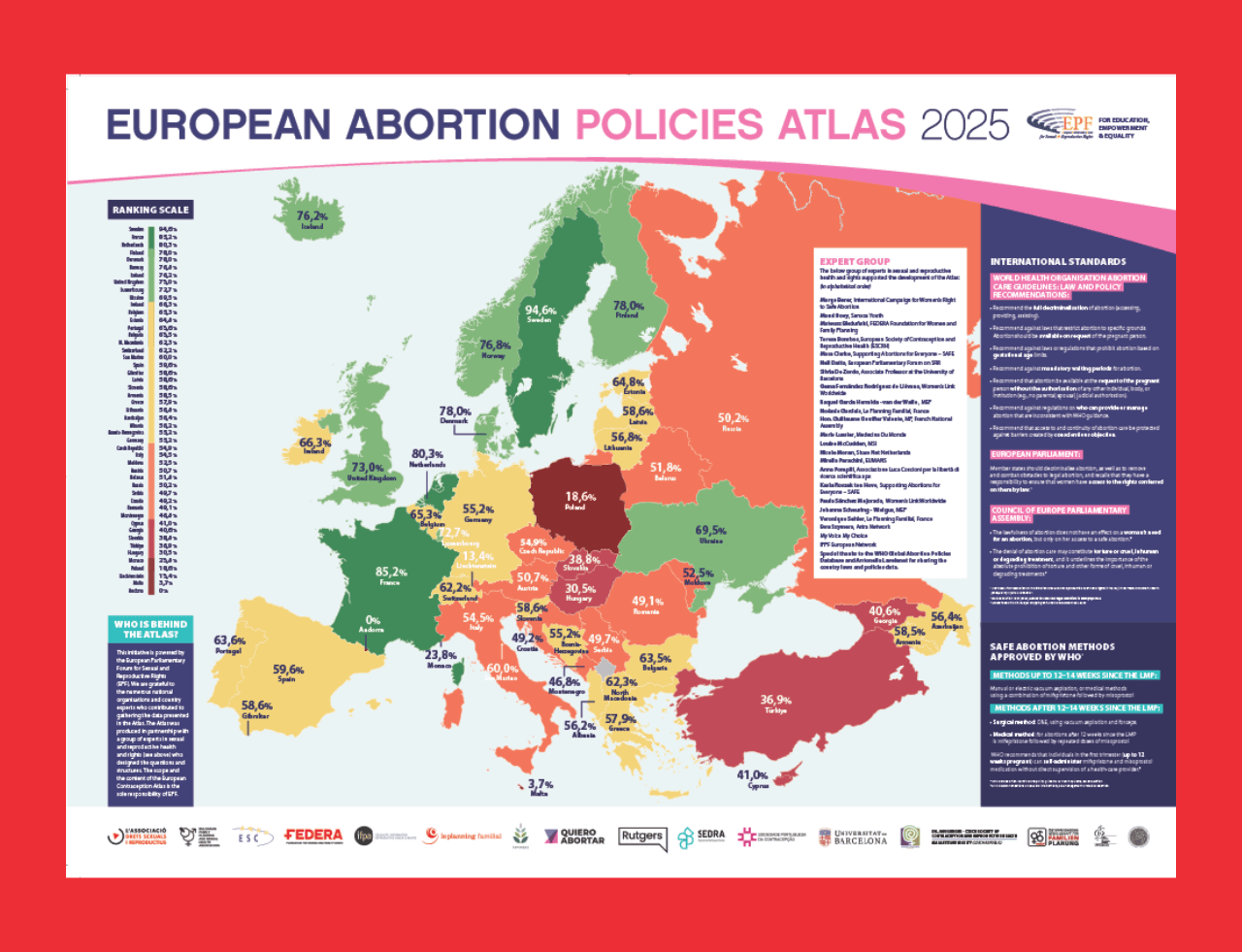April 2020: Parliamentary debate on 2 legislative proposals quasi totally banning abortion and sexuality education
In the midst of coronavirus pandemic, the Polish Sejm decided to proceed with the 1st reading of the two controversial legislatives proposals. The reading took place on 15-16 of April, while the free movement of persons and the freedom of assembly were gravely limited. Due to public health grounds protests against the bills could not happen on the streets.
Both bills resulted from mobilisation of the citizens who have been actively fighting in the last years against abortion and sexuality education. These are so called civic initiatives which required from over 10,000 citizens of Poland to give the signatures.
Nevertheless there were many diverse protests online and offline (in line with sanitary regimes), co-organised by the Federation. Both draft bills were forwarded to the specialist parliamentary committee for further works. It will largely depend on political will if and when the bills will be examined in the committees and presented for further readings.
A) The first legislative initiative called “Stop abortion” has been brought for Sejm’s attention in 2017 and following the wide social protests has remained frozen in the parliamentary committee until now. The bill provides for a prohibition of abortion due to severe and irreversible foetal impairments and deletes this ground for abortion in the Family Planning Act of 1993. This bill would mean in practice a total abortion ban (98% of abortions in Poland are performed on this grounds). As a consequence of this ban, it would be much difficult for women to access a reliable information about the condition of the foetus. Lack of reliable diagnosis would deprive pregnant persons of the possibility to decide on their own whether to continue their pregnancy or not.
B) Another draft bill introduces further restrictions to barely existing sexuality education in Poland. The signatures in support of this bill were gathered in widely criticised campaign called “Stop Paedophilia” which focused its message on associating sexuality education with paedophilia. This bill proposes amendments to criminal code. It may result in the criminalisation of sex educators in Poland and further stigmatise the crumbs of sexuality education in Poland. In practice the bill would stop doctors from prescribing contraceptives for anyone under 18 and would put carers at risk of imprisonment if they talk to youth about sexuality.
May 2020: amendments to the draft bill deleting referral obligation
On 27 May 2020 on the session of the Parliamentary Committee on Health the amendment introducing the referral obligation to the government draft bill on the doctors’ and dentists’ professions has been deleted. The draft bill without the referral obligation passed the 3rd reading in the Polish Sejm and was sent to the Senate for adoption (or deletion of amendments). The Senate where the opposition holds the majority restored the referral obligation to its draft. The Sejm may now reject the amendment on the referral obligation introduced by Senate by the absolute majority of votes (more than 50 %).
At stake here is a provision of Article 39 § 2 which in case of a refusal to perform abortion by a doctor who relied on the conscience clause, obliges the hospital to refer to another hospital or institution which could perform the service. If this provision does not become a part of this law, women will be forced to look for hospitals who would perform legal abortion on their own, without ANY institutional assistance.
This is another step further limiting the rights of women in Poland in accessing SRHR services. Access to legal abortion is a guaranteed service under the public health scheme. Deleting this provision strips women of practical access to abortion services guaranteed by law. As a result, women who might be already in a stressful situation will be forced to travel the entire country, from hospital to hospital requesting access to abortion. Given that only 10% of hospitals provide legal abortion services in Poland, it makes it extremely difficult for women. It will further outlaw abortion, push it underground seriously affecting rights and safety of women in the country.
Deletion of this provision is a blatant violation of the recent call for action from March 2020 addressed by the Council of Europe’s Committee of Ministers who monitors (lacking) progress in the execution of 3 judgments of the European Court of Human Rights against Poland concerning important aspects of access to basic SRHR services.
The recommendation calls among other things: “to provide explicitly that a healthcare provider has an obligation to provide information to patients on how to obtain healthcare services which were not performed due to the use of the conscience clause and strongly encouraged the adoption of such an amendment without further delay”.
Moreover, it violates numerous recommendations of UN bodies and institutions addressed to the Polish government to remove all the legal and social barriers for women in access to abortion.
June 2020: The President signed the package of Covid-19 related laws which sneaks the changes into criminal code
Together with the provisions that among other things were to mitigate the consequences of the crisis for entrepreneurs, the significant changes unrelated with the pandemic were pushed through. Among them the troubling changes to the penal code were introduced which give preference for the prison penalties as regards the following crimes: insulting of the president, assisting or performing an abortion and for unintentional medical mistakes made by a nurse or doctor. The amendment relates to Art. 37a of the criminal code which refers to the pronouncing of the criminal penalties, in particular the conditions of substituting the penalty of imprisonment by the limitation of liberty or fine. Pursuant to the change in this provision the penalty of imprisonment will be a priority as regards the above-mentioned types of crimes.
As much as it is hard to foresee the practical implications of this amendment on the judicial practice of judges who deal with abortion related crimes and pronounce sentences, to push these changes in the Covid 19 package is another slap for women from the Polish authorities.
Ministry of Justice awards medal to anti-abortion activist
Poland’s Justice Ministry presented a medal for “merit in the field of justice” to a 25-year-old anti-rights activist who prevented a 17-year-old from having an abortion by informing her parents[1] (ZW). It has been reported that ZW entered an internet forum where the adolescent commented about her plans. ZW harassed the teen, sending photos of bloody foetuses. When the girl refused to change her mind, ZW contacted her boyfriend and parents to warn them of the situation. The activist is a volunteer at the Fundacja Pro-Prawo do Życia, an NGO known for aggressive advocacy against abortion and LGBTI rights, linked to a fundamentalist legal think thank Ordo Iuris.
This nomination shows clearly what kind of NGO activism is supported by the Polish government.
Conclusion
All these initiatives which have been adopted or are close to become a law separately and especially all together constitute a depressing evidence of how ruling party attempts to strip away already restricted rights of access to SRHR. With a re-election of A. Duda, the Law and Justice President in July 2020 and with the end of the presidential campaign these legislative initiatives may become biding laws sooner that we all expect.
The laws such as described above should not be debated/adopted where the opportunities to hold the debate in the society are limited, people are more vulnerable and their focus might be somewhere else. These developments have nothing to do with the crisis management.
They constitute yet another serious rollback for Polish women and society as regards the respect for fundamental rights of women and access to sexual and productive health and rights.
[1] https://notesfrompoland.com/2020/05/18/polish-government-honours-pro-life-activist-who-stopped-teen-having-abortion-by-informing-her-family/




